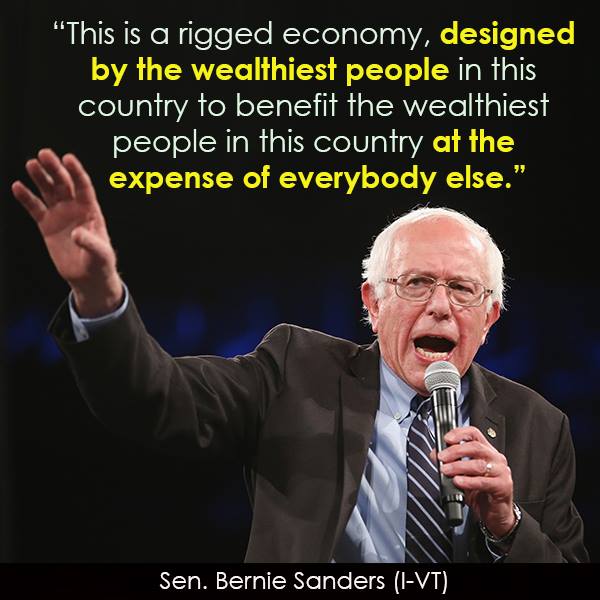“This is a rigged economy, designed by the wealthiest people in this country at the expense of everyone else.” A picture of US Senator Bernie Sanders with these words emblazoned above his head currently has over 14,000 shares on Facebook. The continual stream of such photos from Sanders’ official page are accompanied by thousands of similar images and memes created and spread by the candidate’s supporters. These viral images are a symptom of the problems of the changing face of US presidential elections. Today, social media provides more space for voters to become influenced by potentially unreliable and biased information. An educated electorate, the foundation of a democratic society is, more than ever, at risk of being misled.
Voters, especially first-time voters who have been immersed in online culture for much of their lives, need to learn to sift through the muck of viral opinion to find substantive policy information. Presidential candidates craft their images in order to show themselves as the most competent leaders. While personality is certainly a factor in voter evaluations of candidates, social media often proliferates incorrect or fluffy information to the detriment of hard policy positions. In 2008, President Barack Obama successfully ran the first ‘Facebook campaign’ by using social media to build record support among youth voters. Capitalizing on the nature of social media communication, Obama’s campaign staff used his “Yes we can” and “Change you can believe in” slogans to build momentum and mobilize vast numbers through meme-worthy one-liners. Unfortunately, most significant policies cannot be reduced to three word catchphrases or 25 second canned responses. Moreover, attempting to do so gives constituents the wrong impression.
Social media is not entirely detrimental to elections. A study released in 2012 found that social media peer pressure played a critical role in voting behaviour during the 2010 Congressional elections. When Facebook users were given the opportunity to check in at their polling places and broadcast an “I Voted Today” message to their friends, their followers were more likely to vote as well. Although social media is getting more people to the ballot box, conversations regarding policy are too easily distorted in an online climate. A 2015 poll conducted in the UK showed that 34 per cent of voters aged 18-34 believed that something they read on social media would impact their election decision. Misinformation spreads and reaches voters easily online. For example, in a segment from Jimmy Kimmel Live, Americans spoke ill of Obamacare but praised the Affordable Care Act. The differing reaction to the same bill under different names clearly shows that voters are not basing their opinions on substantive policy, but on their perception of policies.
[metaslider id=43283]
Rather than taking place over a dinner table, political conversations easily escalate and then disseminate across the internet. The result is a downward spiral that further divorces opinion from reality, replacing fact with fiction. As such, Americans must make a conscious effort to be self-reflective in their online activity during elections to ensure they do not perpetuate a disrespectful election culture. In response to the Sanders campaign, online discourse has become dangerously hostile and disrespectful. Sanders supporters recently received negative media attention for aggressive campaigning on dating apps, like Tinder. Sanders himself criticized some of his followers for inappropriate sexism through memes towards Hillary Clinton. This issue is compounded by stratification in age groups, with many young voters gravitating toward certain candidates and labeling those of their peers who don’t as being against young Americans and therefore open to hostility and ridicule. This aggressive behaviour is common in online interactions, such as on forums like Reddit, but new to presidential campaigns. Ultimately, elections should be respectful competitions between candidates and parties, but informal social media campaigning intensifies the discourse. Thus, the line between candidate and anonymous commentator becomes blurred in the mind of the voter.
Choosing a presidential candidate is a responsibility that should not be taken lightly by voters, but is currently coming down to peer pressure from sites such as Facebook. It is important to do independent research into election issues you care about to determine which candidate might represent you best, rather than allowing yourself to be swayed by catchy information on the internet.










